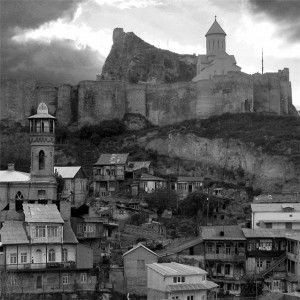Authors pack a lot of baggage into their books. We’ve been influenced by friends, enemies, teachers, family, parents, public figures, and even strangers. We’ve read books we love. Movies. Places. We’ve lived through historic events: wars, catastrophes, political movements and social upheavals. As a kid, I didn’t realize the significance of these influences. Life centered on school, friends and family (with a heavy dose of reading); the grist of contemporary novels. Only years later, when someone asked, “When did you decide to be a writer?” did I start to remember things that happened and realize how they influenced my life.
“… myths are simply history blended with time. Since history never ends there are always tales in the making. Although, … we may not recognize our part in them at the time.”
I think this statement (from MYTH RIDER) explains a lot about why I write historical fiction. I love the opportunity to look at the wider world my characters live in. This is much harder to do when writing a contemporary novel. Of course, all characters have a world they live in. But, it seems to me, when I write a contemporary story it is a more restricted world. We don’t know what contemporary books they are reading or what movies they are watching. We don’t know who is president or what major world events are going on. Putting real stuff in a contemporary book would make it dated before it went to print. Therefore, authors who write contemporary stories, or novels set in fantasy worlds or the future, must create a world and lure readers to believe. Of necessity, characters live in the bubble set by the author.
Because we can’t discover what is going on in the wider world, it is more difficult to make connections. I love connections. I knew when I began Myth Rider that the story would be set in 1910. My main character would have a family. Friends. A quest. What else was going on in the wider world? Wild West shows. A popular book called The Wonderful Wizard of Oz. Teddy Roosevelt. The first movies. Upheaval in Russian. The myth of the Centaurs. A world giddy with a new century, new technology, optimism. How did all of these things touch my story?
I talked to a fantasy writer recently who mentioned that he didn’t write historical fiction because it was easier to make it all up. It is easy to make things up. We all do it. But fantasy writers do much more. They create and sustain worlds. That is not easy. I love writing historical fiction because I can create a story then let the world in.
Recently, I was working on a mystery. I liked the characters. The plot was spooky with a lot of good twists. But I just couldn’t get into this contemporary novel. So, I moved my story back in time. Ahh! Suddenly, my characters have a wider stage. I feel like the story has a greater depth. I’m excited to work on it again.
Give me facts. I’ll give you a story.

When I realized that the only way I will get to time-travel in this life is to write historical fiction, I knew why it was worth the trip. Reading is not even close to the same experience as getting into you character’s head.
Our task as storytellers is to convey it well enough that the reader gets most of what we have experienced going there.
I love the research. It’s hard to be selective on what the story really needs.
I love historical fiction! It’s a fun way to learn history! 🙂
I look forward to reading your book!
Thanks, Shawn. I hope you enjoy it!
I agree with Mirka, that reading an historical novel, or writing one, is an opportunity to time travel. My historical WIP was inspired by my curiosity about a certain person, time and place.